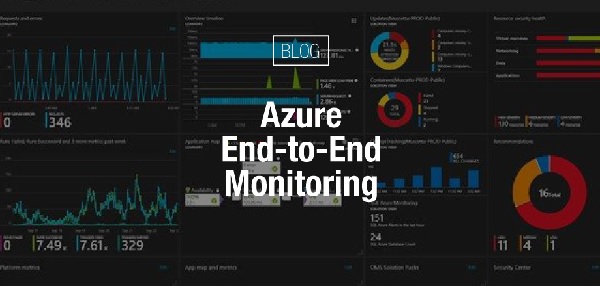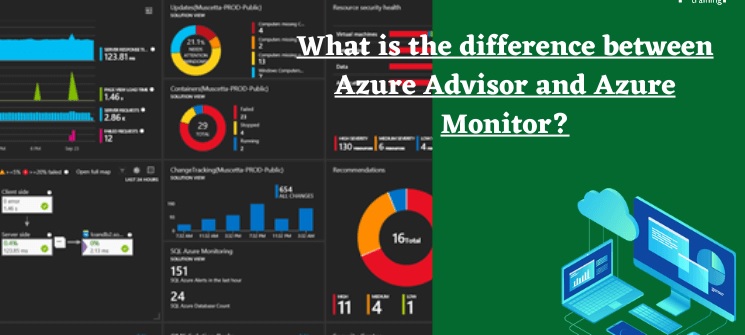Table of Contents
- Understanding the Contrast: Azure Advisor vs Azure Policy
- Leveraging the Power of Azure Advisor and Azure Policy Together
- Making the Most of Your Cloud Infrastructure with Azure Advisor and Azure Policy
- Identifying the Pros and Cons of Azure Advisor and Azure Policy
- Optimizing Your Cloud Setup with Azure Advisor and Azure Policy
Security Center Azure Advisor and Azure Security Center are two powerful tools provided by Microsoft to help you secure and optimize your cloud environment. Both tools provide valuable insights into your environment’s security, performance, and cost, but they do so in different ways. Azure Advisor provides recommendations that aim to improve the performance, cost, and reliability of your Azure resources. Azure Security Center provides a centralized view of your security posture, helping you detect and respond to potential threats. In this article, we’ll review the differences between Azure Advisor and Azure Security Center, so that you can best utilize them to secure and optimize your environment.
Understanding the Contrast: Azure Advisor vs Azure Policy
Azure Advisor and Azure Policy are both important tools in the Microsoft Azure cloud computing platform. While they have similar functions, they are distinct in their purpose and implementation. Azure Advisor is a service that provides personalized recommendations for improving the performance, security, and cost of Azure resources. It provides actionable recommendations and best practices based on resource usage patterns, available updates, and configuration of resources.
It can also help detect potential problems that may arise, and offers clear steps to mitigate them. Azure Policy is a service that provides a set of rules and effects to ensure that resources stay compliant with organizational standards and service level agreements. It allows organizations to enforce compliance across their Azure environment, by defining rules that restrict certain types of resources or configurations from being deployed. These rules can be applied to individual subscriptions, resource groups, or even the entire Azure environment.
While Azure Advisor and Azure Policy both offer proactive solutions to ensure the best performance of Azure resources, they are distinct in their purpose and implementation. Azure Advisor provides personalized recommendations for the optimization of resources, while Azure Policy provides a set of rules and effects to ensure that resources remain compliant with organizational standards.
Leveraging the Power of Azure Advisor and Azure Policy Together
Azure Advisor and Azure Policy are two powerful tools that allow businesses to maximize their return on investment (ROI) when utilizing Microsoft Azure cloud services. When used together, they provide an even more powerful combination to ensure cost optimization, compliance, and security. Azure Advisor provides personalized recommendations for optimizing Azure resources. It monitors resource configurations and usage trends, and provides recommendations to help reduce costs, improve performance, and increase security.
It also provides recommendations to help ensure compliance with regulatory standards such as GDPR and HIPAA. Azure Policy is a service that enables businesses to define and enforce organizational standards for cloud resources. It provides an easy way to manage, monitor, and audit the compliance of resources with corporate standards. It can also be used to automate the remediation of non-compliant resources. When used together, Azure Advisor and Azure Policy provide a comprehensive solution for managing and optimizing cloud resources.
By leveraging the power of both tools, businesses can ensure that their resources are optimized for cost, performance, security, and compliance. They can also gain greater visibility into resource usage in order to more effectively plan for future resource needs. Overall, leveraging the power of Azure Advisor and Azure Policy together is a great way to maximize ROI and ensure that cloud resources are managed and optimized for maximum efficiency.
Making the Most of Your Cloud Infrastructure with Azure Advisor and Azure Policy
As a business owner, you understand the importance of making the most out of your cloud infrastructure. With Azure Advisor and Azure Policy, you can ensure that your cloud environment is optimized for security, cost, and performance. Azure Advisor is a free service that provides personalized recommendations to help you improve the performance, security, and cost of your Azure resources. It provides recommendations related to security, high availability, and cost optimization. It also reports on any resource that is underutilized so you can make the necessary adjustments.
Azure Policy is a service that enables you to create, assign, and manage policies that enforce compliance to organizational standards and service level agreements. It helps you to define and enforce standards for resource properties, naming conventions, and tags. It also monitors resource configurations so that changes adhere to the rules that you’ve created. Using Azure Advisor and Azure Policy together, you can ensure that your cloud infrastructure is secure, cost-effective, and running at peak performance. By taking the time to analyze and optimize your cloud environment, you can ensure that your business is prepared for the future.

Identifying the Pros and Cons of Azure Advisor and Azure Policy
Azure Advisor and Azure Policy are two powerful tools available to Azure customers to help them secure, optimize, and manage their cloud environments. Both services can help organizations save money and time by automating administrative tasks and providing real-time visibility into their Azure resources. Pros of Azure Advisor
Automated checks: Azure Advisor can automatically check for configuration, security, and performance issues in an Azure environment and generate recommendations to help customers address them.
Easy to use: Azure Advisor has an intuitive user interface that makes it easy to understand and use for even novice users.
Cost savings: Azure Advisor can help customers save money by recommending cost-saving actions such as reducing usage of certain services or using reserved instances. Cons of Azure Advisor
Limited scope: Azure Advisor only covers a limited range of services and does not provide detailed information about every service or resource.
Slow response times: Azure Advisor can take a long time to respond to requests and generate recommendations. Pros of Azure Policy
Flexibility: Azure Policy enables customers to create custom policies to meet their specific needs.
Automated enforcement: Once a policy is created, Azure Policy can automatically enforce it, ensuring that the customer’s environment remains compliant.
Scale: Azure Policy can be deployed across multiple subscriptions and resource groups, ensuring that the customer’s environment is consistently secure and compliant. Cons of Azure Policy
Complexity: Azure Policy can be complex to configure and understand, requiring a certain level of technical knowledge.
Limitations: Azure Policy has certain limitations in terms of the types of policies that can be created and enforced.
Cost: Azure Policy can incur additional costs in terms of additional Azure resources and services required to deploy and manage policies.
Optimizing Your Cloud Setup with Azure Advisor and Azure Policy
Azure Advisor and Azure Policy are two important tools offered by Microsoft Azure that allow businesses to optimize their cloud setup. These tools provide guidance in the form of recommendations and automated enforcement for cloud resources, helping organizations to manage their cloud resources more effectively and efficiently. Azure Advisor is a cloud service that provides personalized recommendations to help businesses optimize their Azure resources. Based on usage and configuration data, Azure Advisor provides recommendations on availability, security, performance, cost, and operational excellence.
These recommendations are tailored to each organization’s cloud setup, helping to ensure the most efficient use of resources. Azure Policy is a service that helps organizations enforce compliance rules and ensure that their cloud resources are always configured correctly. Policies can be used to enforce standards such as naming conventions, security configurations, and tags. This helps to ensure that all resources follow the same standards and are secure. Using Azure Advisor and Azure Policy together can help businesses optimize their cloud setup.
Azure Advisor provides recommendations for how to improve their cloud setup, while Azure Policy helps to ensure that those recommendations are enforced. This helps organizations to maximize the efficiency of their cloud resources and minimize costs associated with their cloud usage. By taking advantage of Azure Advisor and Azure Policy, businesses can optimize their cloud setup and ensure that their cloud resources are secure and compliant. This helps organizations to make the most of their cloud investments and get the most out of their cloud resources.
Final Thought!
Monitor Overall, Azure Advisor and Azure Monitor are two distinct services that work together to help businesses manage their Azure resources. Azure Advisor provides personalized recommendations, while Azure Monitor provides real-time logs, metrics, and alerts. Both services enable businesses to optimize performance and reduce costs. By taking advantage of the benefits of both services, businesses can ensure their Azure resources are operating efficiently.
